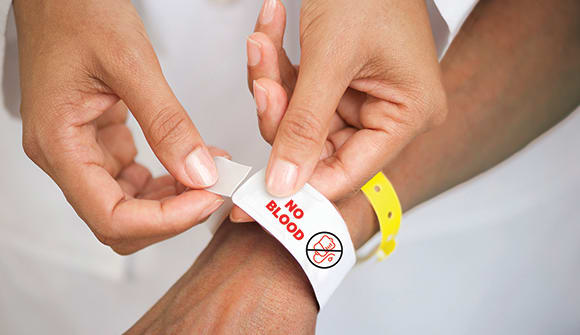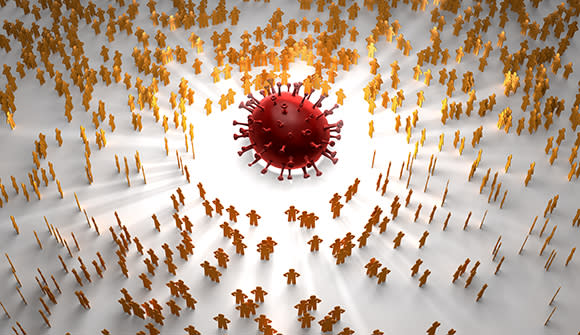What is listeria?
Understanding the illness behind the headlines.

Hot dogs, ice cream, salad and fresh melon. Some of summer's most-loved treats can turn vacation dreams into a nightmare if they contain the bacteria Listeria monocytogenes. This germ, commonly found in soil, groundwater, rotting vegetation and animal poo, could also result from unsanitary food manufacturing or processing, or from unsafe handling or storage. It causes a disease called listeriosis, more commonly known as listeria.
Shalika Katugaha, MD, system medical director of Infectious Diseases at Baptist Health, answered some commonly asked questions about listeria.
How does someone get listeria?
"Listeria is an infection people get after eating contaminated food," said Dr. Katugaha. Though it can affect almost any improperly handled or prepared food, the most common offenders are:
- Hot dogs (cold, uncooked)
- Deli meats
- Fresh vegetables
- Fresh fruits (especially melons)
- Unpasteurized dairy products (soft-serve ice cream, soft cheeses, raw milk)
- Smoked or raw seafood and shellfish
Is listeria different than food poisoning?
"Food poisoning is used as a blanket term," explained Dr. Katugaha. "There are more than 250 different types of foodborne infections, which we call food poisoning. Listeria is one of them. It isn't the most prevalent, but it gets a lot of attention because it's usually associated with certain foods or recalls, and then everybody hears about it in the media."
Who is most at risk for serious illness?
"Anyone can get listeria, but those with healthy immune systems are less likely to experience extreme illness. There are certain populations who can get very sick with invasive disease," said Dr. Katugaha. High-risk groups are:
- People 65 or older
- Those with weakened immune systems
- Pregnant women
- Unborn babies
What are the symptoms of listeria?
The most common symptoms are:
- Chills
- Diarrhea
- Fever
- Headache
- Muscle aches
- Nausea, upset stomach and/or vomiting
More serious symptoms include confusion, loss of balance and convulsions.
If you eat something contaminated, how long does it take symptoms to show up?
"Symptoms of gastroenteritis (fever and diarrhea) can occur within 24 hours of ingesting the bacteria. More serious symptoms can present for up to 70 days," said Dr. Katugaha.
How serious is a listeria infection?
"Most people with healthy immune systems do fine with listeria and may experience fever, diarrhea, nausea and vomiting," said Dr. Katugaha. In extreme cases, mostly in high-risk people, the infection may spread to the bloodstream, brain or other parts of the body, which could be deadly. For pregnant women, the illness is more likely to affect the baby than the mom, and could cause miscarriage, still or premature birth, or death in newborns.
How is listeria diagnosed?
Dr. Katugaha said, "Your primary care physician (PCP) can diagnose the illness by evaluating symptoms and through a blood test called a 'bacterial culture.'"
Can listeria be cured?
"Yes, people who are exposed to contaminated food and have fever and other symptoms can be treated with antibiotics," said Dr. Katugaha.
How can I reduce the risk of getting listeria?
If you're in the high-risk category, be careful what you eat and drink, and how you store and prepare food:
- Ensure any dairy products you consume are pasteurized.
- Wash your hands and any food prep surfaces before and after cooking.
- Thoroughly wash raw fruits and vegetables.
- Cook hot dogs, egg dishes, seafood and deli meats (don't eat cold or raw).
- Store food in clean plastic wrap, foil, bags or containers in the refrigerator within two hours, and eat within three or four days.
- Heat leftovers to HOT.
- Don't let juices from raw meat touch other foods.
- Keep an eye on the news or the CDC's National Outbreak Reporting System (NORS) for information about recalled foods and drinks.
"In general, we can always protect ourselves from any foodborne illnesses, including listeria, by being cautious with what we eat and being familiar with food safety protocols," advised Dr. Katugaha.
If you're experiencing minor symptoms of food poisoning or listeria, or have recently consumed a food or drink that was recalled due to a listeria outbreak, contact your primary care physician. If you or a family member are exhibiting more extreme symptoms of a foodborne illness, such as convulsions, loss of balance or loss of consciousness, call 911 or go to your nearest emergency room.



